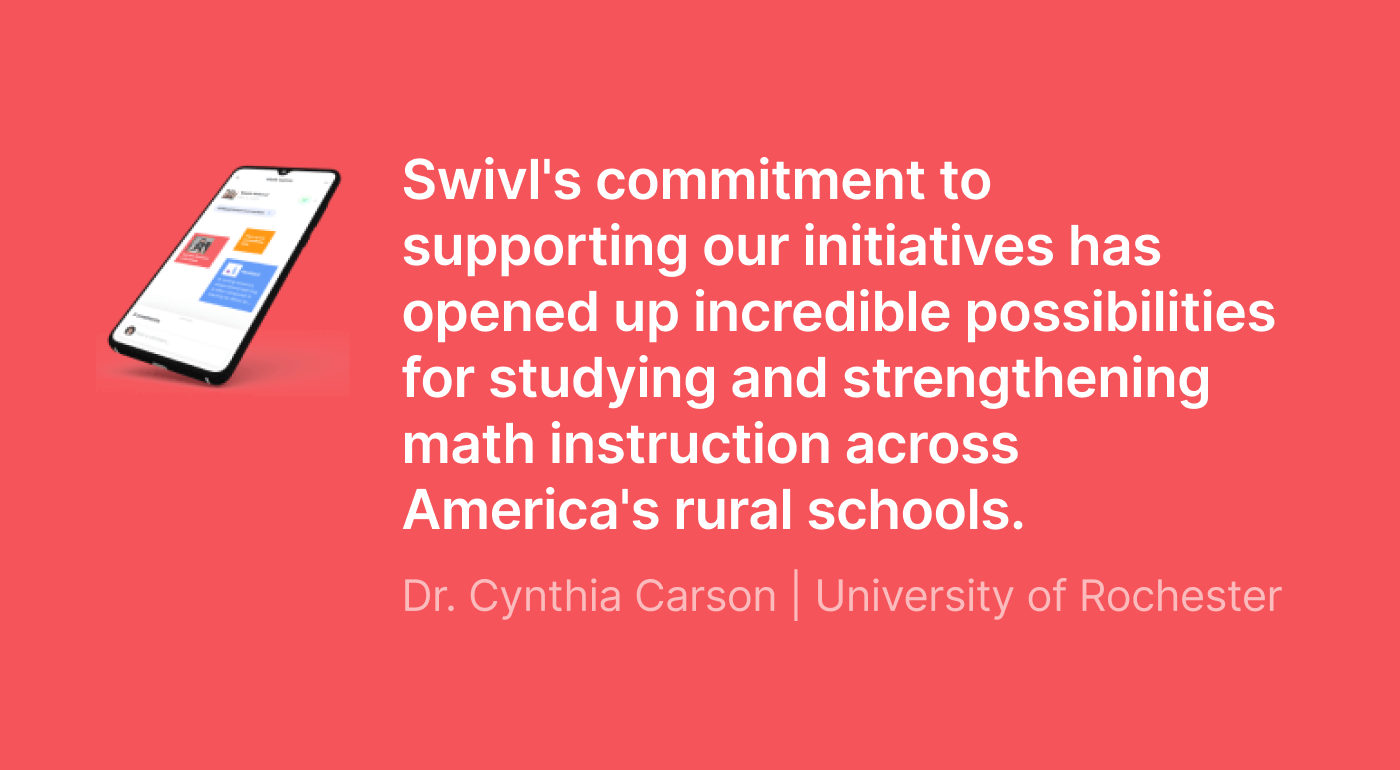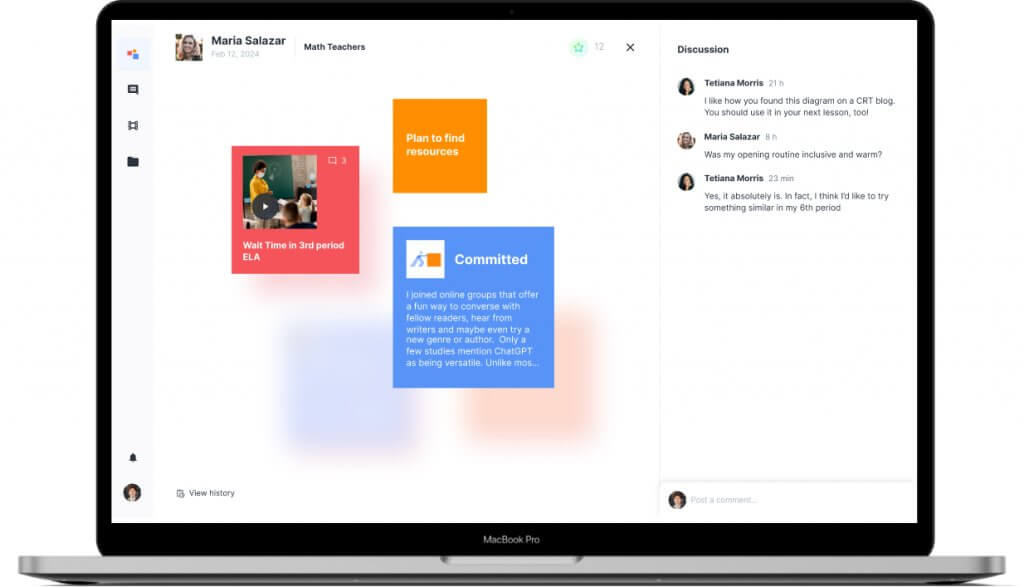

Swivl’s commitment to supporting our initiatives has opened up incredible possibilities for studying and strengthening math instruction across America’s rural schools.
Dr. Cynthia Carson | University of Rochester
USE CASE
Long-term data collection in higher education research
Dr. Cynthia Carson
Academic Program Coordinator
School/District:
University of Rochester
For math teachers in rural districts across the country, high-quality professional development opportunities can be few and far between. With limited resources and colleagues nearby, these educators often lack access to robust training programs focused on enhancing math instruction and improving student outcomes. Dr. Cynthia Carson, an education researcher at the University of Rochester, and her colleagues from the University of Idaho, recognized this challenge. As a project director, she and her team have made online instructional coaching central to their research work — Project SyncOn (Synchronous Online Video-Based Development for Rural Mathematics Coaches). Throughout this research and as Dr. Carson’s team expanded their projects, Swivl has played a prominent role.
Over the past eight years, the University of Rochester has secured two major 4-year grants from the National Science Foundation to design, implement, and study a fully online professional development learning program. “We wanted a model that could connect teachers from rural districts nationwide and provide them with top-notch training opportunities right from their classrooms,” explains Dr. Carson. “The key was finding the right video technology to capture high-quality footage and audio of instruction while enabling easy sharing and collaboration.”
Dr. Carson and her team decided to partner with Swivl for the software and hardware solutions that could power their initiative. Using Swivl Robot’s tracking capabilities, teachers could effortlessly record their math lessons from anywhere, capturing crisp audio and wide angle views. These videos, automatically uploaded to Swivl’s secure cloud library Reflectivity, provided instant access for coaches and researchers. Prior to Swivl, Dr. Carson had teachers orchestrate recordings of their classes using traditional cameras, transfer video to flash drives, and mail those flash drives back to the university. Poor file compatibility, postal delays, and low video quality created hurdles for their program and threatened the effectiveness of their research.
“Swivl’s ease of use was a game-changer,” says Dr. Carson. “Teachers didn’t need extensive technical skills – they could just hit ‘record’ and knew the video would be high quality and readily available for their coaches to review. We needed something that was easy, because we didn’t want technology to be a barrier for us in terms of getting the data that we wanted.”
Privacy matters
Swivl’s impact went beyond powerful recording capabilities. Its robust data privacy controls allowed Dr. Carson to tightly manage video access – a crucial factor in gaining approval for her research from university ethical review boards. Dr. Carson even recalled meeting with Swivl co-founder Vlad Tetelbaum who worked closely with her team to ensure compliance and additional security criteria for her research.
Throughout the years, Reflectivity has continued to support the evolving privacy requirements for this project. “To preserve the privacy of data, Reflectivity allowed me to create groups between a teacher and a coach. The only people that would have access to videos posted in these groups were the teacher, the coach, and the researcher who was approved to see the data.”
Robust research support
Swivl’s time-coded commenting feature drives coaching conversations. Instructional coaches are able to pause videos, leave contextual notes at precise moments, and engage teachers in guided discussions around specific teaching practices. “With Swivl’s technology, we could move our entire professional development cycle into the online space,” remarks Dr. Carson. “From discussing and modeling lesson plans to providing targeted feedback on implementation, everything became more seamless and impactful.”
With multiple cohorts spanning rural districts nationwide, Cynthia’s research has explored the immense value her video-based model has had improving math instruction in rural areas and building teacher capacity. And at the center of this transformative work is the power of Swivl’s technology, eradicating geographic barriers and facilitating cohesive data collection.
Supporting research with Swivl

Interested in learning how Swivl can support your research projects? Schedule a consultation with the Swivl team to learn more.
Disclaimer: The opinions, findings, and conclusions, or recommendations expressed are those of the author(s) and do not necessarily reflect the views of the National Science Foundation (NSF).
Acknowledgement: This work was supported by the US National Science Foundation under Grant Award 2006353. This work was supported by the US National Science Foundation under Grant Award 1620911. This work was supported by the University of Idaho.